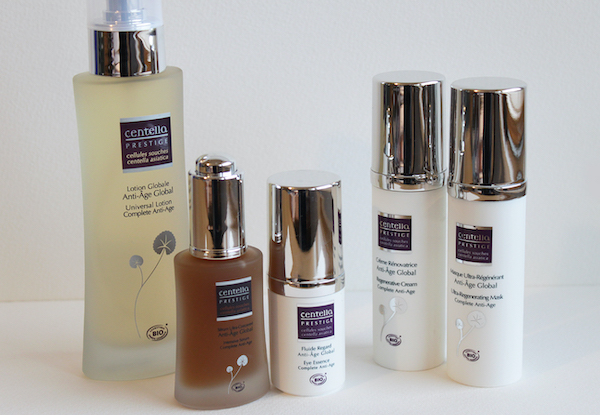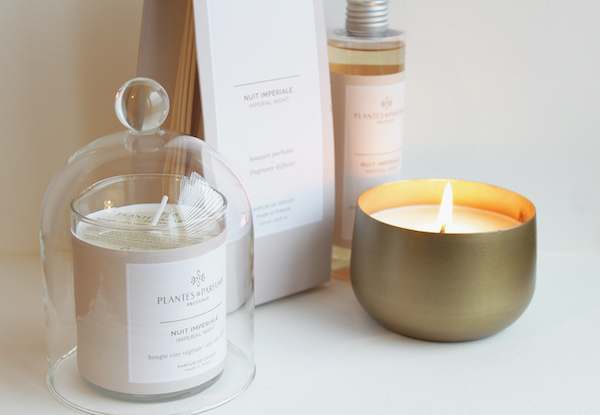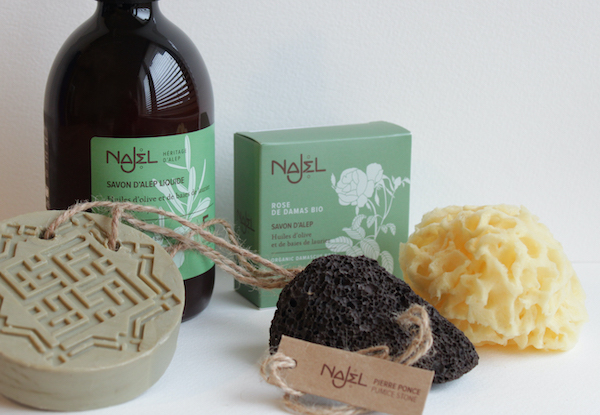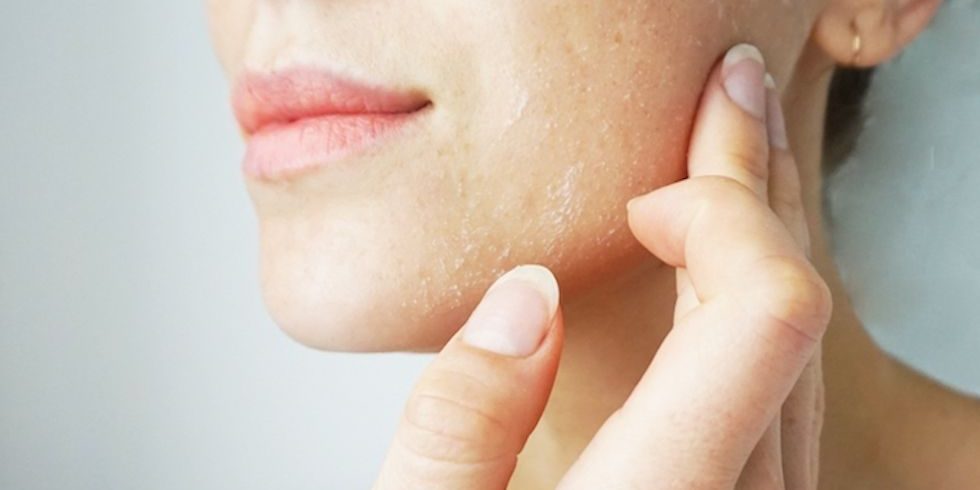Want to know everything about exfoliation? Look no further. This blog will discuss all you need to know about exfoliation. From the benefits, to the pros and cons, to how to best exfoliate for your skin type.
What is Exfoliation?
The majority of people have heard of the term exfoliation. Whether its body or facial exfoliation, it is an integral process to most beauty treatments and skincare regimes. Treatments such as peels, microdermabrasion and scrubs have become trending buzzwords in today’s beauty industry. There’s a lot of talk about the benefits of exfoliation for the skin. But what exactly IS exfoliation?
Coming from the Latin word exfoliatus, which translates to “strip off leaves” (ex meaning off, and folium meaning leaf). The term describes the stripping or shedding off of any surface layer. When related to the skin, this means the shedding off of the dead surface skin cells that build up on the top layer of the skin, the epidermis.
Exfoliation is usually done by one of two ways. Manual exfoliation, meaning the dead skin cells are actively removed by a physical and mechanical force. This can be mild exfoliation such as gentle scrubs, to intense microdermabrasion. As well as chemical exfoliation. This is done using products usually containing acids (mostly AHA’s such as lactic or glycolic acid) to dissolve dead skin cells.
How it Works
Whether done chemically or physically, exfoliation’s main effect is removing dead skin cells from the upper layers of the epidermis. Every 28 days or so, the fresh, skin cells from the reproductive layer of the epidermis, move up to the surface layer. The once fresh, plump and living cells of the deeper layers go through a process known as keratinisation.
During this process the skin cells lose moisture, die, and are transformed into the protein keratin. Keratin is a tough, waterproof protein that serves to protect our skin, hair and nails from damage from the external environment.
However, overtime these dead, keratinised cells will build up on the surface of our skin. These cells can reside in our pores and fine lines, stretching them out and accentuating their appearance. This can lead to a tired and dull complexion, and can contribute to congestion and the aging process.
The Benefits
When we exfoliate these dead cells from our skin, we enable new, fresh cells to reach the surface. This results in a smoother epidermis, a brighter complexion, and a reduction in the size of pores, fine lines, scarring and hyperpigmentation.
By removing these build up dead skin cells from the surface we also allow our products to work more efficiently. Overtime dead skin cells build up on top of one another, and become cemented. This makes it very difficult for substances to pass through the skin, and can contribute to dehydration, dryness and flakiness.
Desquamating these dead skin cells will also greatly aid in the treatment of skin congestion and acne. When dead skin cells mix with sebum, sweat and dirt, they bind together and can clogs the pores. This can lead to total blockage of the pore, resulting in blackheads. Sometimes the sebaceous glands will become inflamed and infected, resulting in painful pustules, ingrown hairs and even cysts.
The Disadvantages
So now that we know how exfoliation benefits the skin, it is important to discuss how exfoliation can potentially harm the skin.
There are a few ways in which exfoliating can actually cause more harm than good.
Over exfoliation – The skin should only be exfoliated 1-2 times a week depending on your skin type. More than that can potentially compromise the protective hydrolipidic layer of our skin. This can make our skin more sensitive, irritated and vulnerable to the external environment.
This can result in an array of negative side effects, such as sensitivity, irritation, inflammation, redness, breakouts and infection.
Harmful ingredients – Using products that contain harsh chemicals, too strong a concentration of acids, or granules that are too abrasive can do significant damage to the skin. Strong chemicals often found in peels can literally remove layers and layers of our protective epidermis. Tough scrubs can cause microtears and trauma to the skin.
Strong peels, often made from glycolic acid, and AHA’s, can burn the skin. This runs the risk of infection, pigmentation damage, and scarring, and premature aging.
Harsh granular exfoliants can tear the skin, leading to inflammation, irritation, redness and possibly infection as these small cuts will allow pathogens to penetrate the skin.
Not knowing your skin type – If you don’t know your skin type, then you may accidentally use exfoliant products with ingredients that are unsuitable for your skin or any skin conditions you may have.
For example, if you have sensitive skin your hydrolipidic layer is already compromised. If you use an exfoliant that is designed for an oily, blemished skin type the ingredients and granules may be too astringent and strong. This could further sensitise the skin.
If you have a very oily, blemished skin then using a gentle exfoliant with a high oil content designed for dry, sensitive or dehydrated skin could clog pores and worsen the condition.
Beware of the Trends
As discussed previously, there are a lot of treatments on trend now that claim to exfoliate the skin and treat an array of skin conditions, such as acne, scarring, hyperpigmentation, fine lines, wrinkles, and more.
Unfortunately, these treatments can oftentimes be quite severe and harsh on the skin’s natural hydrolipidic layer. Peels and microdermabrasion are two treatments that are growing in popularity. However, these are intense exfoliating treatments. Unless performed by a highly skilled, and trained practitioner, it can be a risky game to play with your skin.
Doesn’t sound too appealing does it? (pun very much intended).
The Best Way to Exfoliate
Here at V Claire Natural Health and Beauty, we believe that the best way to exfoliate the skin is to take a more gentle approach. Using exfoliants that contain gentle, organic and natural ingredients. This will not only help to treat skin conditions such as pigmentation, acne and fine lines, but it will also ensure that the skin is balanced, without compromising the skin’s protective hydrolipidic layer.
In our facials we perform a 2-step gentle exfoliation. The first part is with Hydraflore Gommage Doux. This is a natural and organic exfoliant gel made with micronized rice powder and soothing lotus extract for normal, sensitive, and oily-combination skin. For more dry, dehydrated skin we use Centella Gommage Doux. This contains apricot shell powder, and vegetal oils.
The second part of the exfoliation process is done using the Centella Aromapeeling. This is a gentle lactic acid exfoliant. It is a very mild natural AHA exfoliant derived form organic fermented sugarcane. Dead skin cells are gently and non-invasively removed, and the skin is left smoothened, brightened and balanced.
We recommend to exfoliate the skin 1-2 times a week. For combination-oily, dry and dehydrated skins twice a week is sufficient, for sensitive, delicate skin once a week is preferable.
The Takeaway
So the key points to remember when considering exfoliation is to keep it natural, gentle and simple. Avoid harsh chemical ingredients that strip the skin. Instead opt for eco-certified natural and organic ingredients. Don’t buy into the fads and trends. Stick to the facts, know your skin, and finally always read the ingredients on the label.
It doesn’t matter how expensive the product is or it’s branding, how luxurious the packaging, or how enticing the smell. If the ingredients are not suitable for your skin, or contain synthetic chemicals such as PEG, silicones, sulphates, acrylates, phthalates, EDTA and polymers, you will find it difficult to achieve desired results. Your skin will only ever be as healthy as the ingredients inside the bottle.
“Be good to your skin. You’ll wear it everyday for the rest of your life.” – Renee Rouleau
Why not start your skincare journey with us today. To Book Call 01 497 8833 or Book Online
Also check out our Instagram for more updates on everything skin!
Written by Deirdre Lynch, Senior Beauty Therapist at V Claire Health and Beauty Salon










